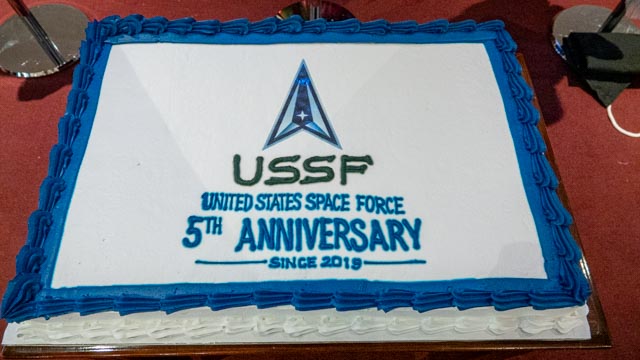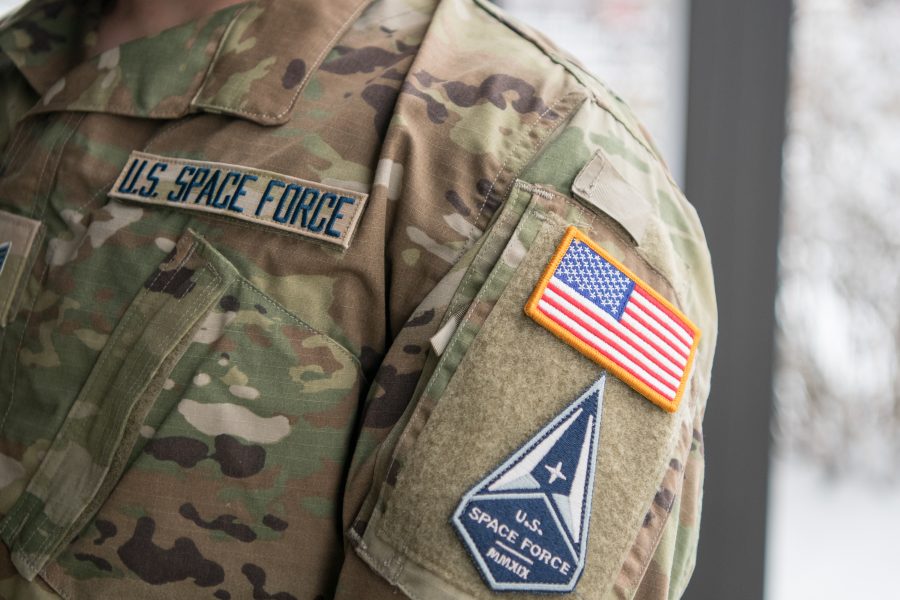The Space Force is now five years old, yet most Americans don’t even know it exists, not to mention what it does or why we need it. That’s an uncomfortable fact and a problem for the entire nation that every Guardian needs to understand and take seriously.
Every Guardian must be able to clearly convey why the Space Force exists, what the service does, and why it is critical to national security.
In the lead-up to the fifth anniversary of the founding of the Space Force, Chief of Space Operations Gen. B. Chance Saltzman detailed “six Space Force truths” that define the service and the Guardian identity. These aren’t meant to be memorized and regurgitated, but rather to be embodied and articulated in each Guardian’s own actions and words.
Just a few years ago, while I was still on active duty and working at the Pentagon, a young man saw the distinct blue thread spelling “U.S. Space Force” on my uniform and stopped me on the street.
“Are you really in the Space Force?” he inquired. When I replied that I was, he quickly followed up: “Can you tell me why we need a Space Force?”
Informed by late-night talk shows and social media, the creation of the newest service seemed to him more a joke than a critical element of our national security. I’m sure many Guardians have experienced something similar.
To make the discussion as relatable to him as possible, I started by describing the ways he might be using space on a daily basis and how dependent he was on space capabilities without realizing it. We talked about communications satellites transmitting entertainment and news content, navigating local roads with the Global Positioning System (GPS), being able to access money at ATMs because of the timing signals from GPS satellites, and accurate weather forecasts made possible thanks to sensors orbiting the Earth. And as valuable as all those things were to him, I said, “…they’re even more valuable to the military.”
Space systems guide our ships, aircraft, and many weapons. Space communications connect the Air Force, Army, Navy, and Marine Corps to synchronize operations globally, provides vital intelligence and weather data to plan those operations, and generates warnings when an enemy launches missiles at us or our allies. Space makes the U.S. military more effective and efficient.
“But there are potential adversaries who want to deny us those benefits,” I explained. Highlighting China and Russia, I talked generally about their ground-based, space-based, and cyber weapons whose sole purpose was to take away our space advantage. To make matters worse, both are also fielding their own space capabilities so they can threaten our Airmen, Soldiers, Sailors, and Marines.
The threats and consequences are so severe, I told him, we need a military service whose only job is to preserve America’s access to space and, if necessary, deny those advantages to our adversaries. This cannot be a part-time job for another military service. It needs to be the dedicated job of one military branch.
“That’s why we need a Space Force,” I concluded.
The whole conversation lasted less than two minutes. Then the young man asked one more question that struck me with its clarity: “Why don’t you guys just say that?”
Fast-forward to today. The Space Force is now five years old, and that question still lingers.
Guardians and the Space Force must tell their story every day, to everyone who doesn’t know it. The six Space Force Truths offer a template, but each of us must be willing and able to explain it in our own words.
The Space Force’s recent initiative to instill operational experience into every new Space Force officer is crucial. Just as “Every Marine is a rifleman,” so too must every Guardian be a space operator. Similarly, just as every Marine can explain why the Marine Corps exists and why it is critical to national defense, every Guardian should be able to do the same for the Space Force. In a sense, every Guardian is a spokesman.
Whether to friendly audiences or skeptics and critics, the Space Force must engage the public to convey how central space is to everyday life, and how essential it is to have a military branch dedicated to ensuring the freedom to navigate, communicate, and operate in, from, and through space.
Having a United States Space Force requires a significant national investment. The taxpaying public is right to wonder what value they will derive from such sacrifice. Guardians, whether military or civilian, have a civic duty to help them understand what that value is.
Late-night comedians and social media trolls love to mock what they don’t understand. Rather than politely smiling, the Space Force should instead meet the challenge head-on and tell their story.
Every American taxpayer should understand that the Space Force makes our way of life possible—every bit as much, if not even more directly, than each and every other military service.
At least that’s one Guardian’s perspective.

